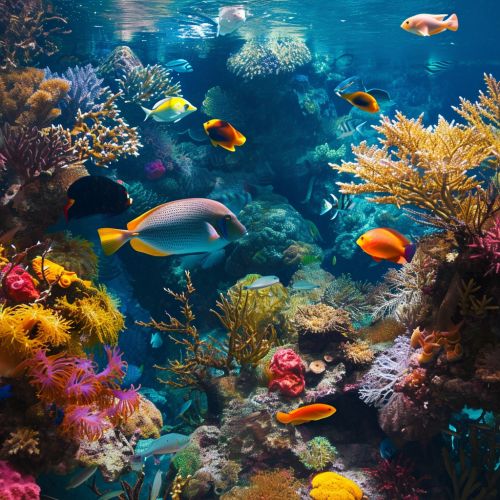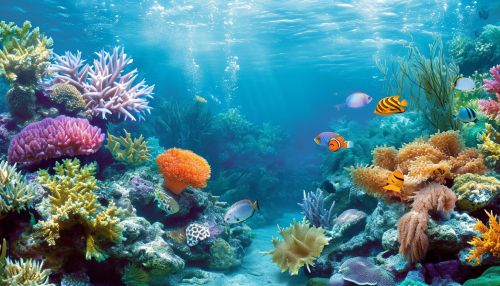Impact of Climate Change on Marine Life
Introduction
Climate change, a long-term shift in global or regional climate patterns, is having a profound impact on marine life. The marine environment, which covers over 70% of the Earth's surface, is not immune to the effects of climate change, with rising sea surface temperatures, ocean acidification, and changes in sea level and currents all having an impact on marine species and ecosystems.


Impact on Marine Species
Marine species, from microscopic plankton to the largest whales, are being affected by climate change. Changes in sea surface temperature can affect the distribution and abundance of many marine species. For example, warmer waters may force species to migrate to cooler areas, which can result in changes in species composition and biodiversity in certain areas.
Some species, such as the Atlantic Cod, are particularly sensitive to changes in temperature and may struggle to survive as their habitats become too warm. Other species, such as certain types of corals, are being directly affected by ocean acidification, a process caused by the ocean absorbing excess carbon dioxide from the atmosphere. This can lead to a decrease in coral growth and survival rates, and can also affect the many species that rely on coral reefs for habitat and food.
Impact on Marine Ecosystems
Climate change is also having a significant impact on marine ecosystems. Changes in sea surface temperature, ocean acidification, and changes in sea level and currents can all affect the structure and function of marine ecosystems. For example, changes in sea surface temperature can affect the timing of certain biological processes, such as the blooming of phytoplankton, which forms the base of the marine food web.
Ocean acidification can also have a profound impact on marine ecosystems. Many marine organisms, such as corals, shellfish, and some types of plankton, build their shells or skeletons out of calcium carbonate, a substance that becomes less available as the ocean becomes more acidic. This can lead to a decrease in the abundance of these organisms, which can have a ripple effect throughout the marine food web.
Changes in sea level and currents can also affect marine ecosystems. Rising sea levels can lead to the loss of important coastal habitats, such as mangroves and salt marshes, which provide important nursery areas for many marine species. Changes in ocean currents can affect the distribution of nutrients and heat in the ocean, which can in turn affect the distribution and abundance of marine species and the structure of marine ecosystems.
Impact on Human Communities
The impact of climate change on marine life also has significant implications for human communities. Many communities around the world rely on the ocean for their livelihoods, through industries such as fishing and tourism. Changes in the distribution and abundance of marine species can have a significant impact on these industries. For example, changes in the distribution of fish species can affect the profitability of commercial and recreational fishing industries.
In addition, the loss of important coastal habitats due to rising sea levels can also have a significant impact on human communities. These habitats not only provide important nursery areas for fish and other marine species, but they also provide important ecosystem services, such as storm protection and water purification.
Mitigation and Adaptation
There are a number of strategies that can be used to mitigate the impact of climate change on marine life. These include reducing greenhouse gas emissions, protecting and restoring important marine habitats, and managing fisheries in a sustainable way. In addition, research and monitoring are important for understanding the impacts of climate change on marine life and for developing effective strategies to mitigate these impacts.
Adaptation strategies are also important for helping marine species and ecosystems cope with the impacts of climate change. These can include assisting species migration, creating protected areas in regions that are expected to be less affected by climate change, and developing new fishing and aquaculture practices that are more resilient to changes in ocean conditions.
